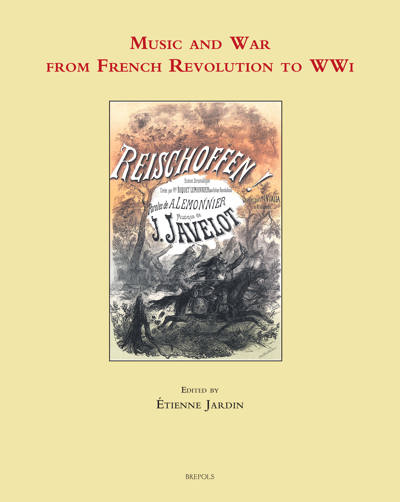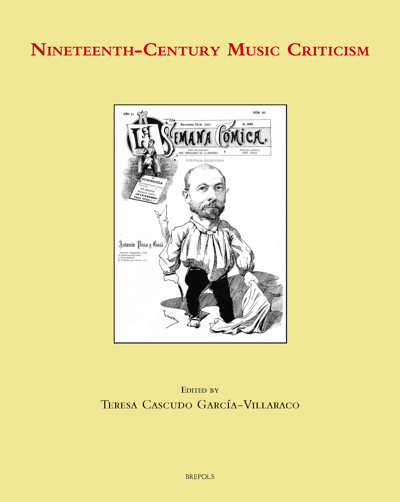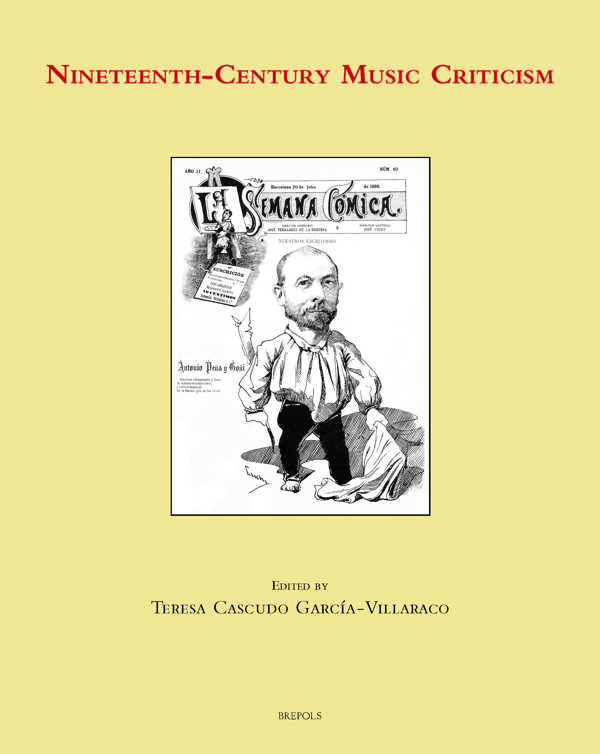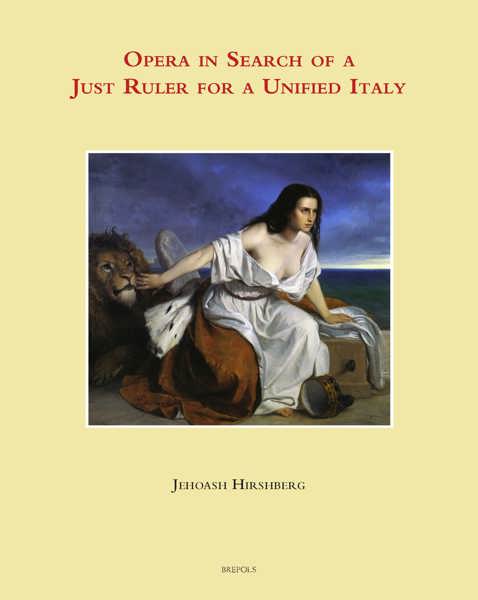
Nineteenth-Century Music Criticism
Teresa Cascudo (ed)
- Pages: approx. 552 p.
- Size:220 x 280 mm
- Language(s):English, French, Italian
- Publication Year:2017
- € 120,00 EXCL. VAT RETAIL PRICE
- ISBN: 978-2-503-57497-4
- Hardback
- Available
This volume reflect the growing importance of music criticism and the press in the long 19th century
“The heterogeneity and sheer variety of the approaches and subjects contained in this volume, as well as the quality of the scholarship throughout, provide a stimulus to increase and develop the study of Nineteenth-Century music criticism. The work represents a valuable advance in the construction and consolidation of the field, promising soon to become one of its most important bibliographic references.” (Marica Bottaro, in Transposition: Musique et Sciences Sociales, 7, 2018)
“En conclusion, Nineteeth-Century Music Criticism es un libro con textos de gran calidad, que abre todo un campo de exploración e investigaci;on y que merece ser consultado per todo aquel interesado en la vida musical siglo XIX.” (María Cáceres-Piñuel, in Revista de Musicología, XLII/2, 2019, p. 720)
Teresa Cascudo is Professor of Music at the Universidad de La Rioja. She collaborates with the Center of the Interdishiplinaries Studies of the 20th Century at the University of Coimbra and a researcher member of the Institute of Etnomusicology, Music and Dance of the Universidade Nova of Lisboa. She is particularly interested in musical criticism and he directed the research group on Music and Press of the Spanish Musicological Society.
The “long nineteenth century” encompasses what has been described by some authors as “newspaper civilization”. Music was fundamental for many men and women who lived during that century. Not surprisingly, at this time, music was a common theme in the press. On the one hand, news, chronicles and criticism played a central part in the musical market, since the success of that market was predicated on the dissemination of information about performers, musical events and new repertoires. On the other hand, as we have observed, the prominence of music opened the door to new types of critical reflection in longer essays. Writings about music in those years were the result of artistic aspirations and preferences; the same writings also present evidence of prejudices and modes of perception marked by specific ideological issues. This volume collects twenty-two articles that address these issues, focusing on case studies in Europe and America. The collection reflects the growing importance of music criticism in particular and the press in general as objects of study for contemporary musicology.
Teresa Cascudo García-Villaraco
Introduction
Music Criticism / Music Journalism
Katharine Ellis Music Criticism, Speech Acts and Generic Contracts
Guillaume Bordry Barnum et les Romains: Critique, claque et réclame dans les Soirées de l’orchestre d’Hector Berlioz
Sylvia Kahan A Critic’s Progress: Émile-Mathieu de Monter’s Musical Reporting of the Paris 1867 and 1878 Exposition Universelles for the Revue et Gazette musicale de Paris
Ingeborg Zechner London’s Italian Opera as a Topic of Interest to International Nineteenth-Century Music Criticism
Jeroen van Gessel Speaking for Whom? Using Opera Reviews from Strasbourg (1887-1918) to Clarify the Problematical Source Character of Music Criticism
José Ignacio Suárez García Graphic Humour as Musical Criticism: Cartoon and Caricature in the First Wagnerian Reception in Madrid
Mónica Vermes The Music in the Theatres of Rio de Janeiro (1890-1900): Concert Series, Music Criticism and Conflicting Cultural Projects in the Early Years of the Republic
Marita Fornaro Bordolli The Power of Music Criticism in the Shaping of Modern Uruguay: An Analysis of the Newspaper Montevideo Musical
Discourses
Melanie Plesch The Cultural Biography of a Music Periodical: Boletín Musical (Buenos Aires, 1837)
Erin Fulton Nativist Rhetoric in the Opera Journalism of Antebellum New York City
Marc Ernesti 1813, Vienna, and a Re-print of the AmZ: Notes on Intertextuality in German Music Media around 1800
Nancy November The String Quartet in Early Nineteenth-Century Performance and Criticism
Maria Teresa Arfini Beethoven e Mendelssohn nel pensiero di Adolf Bernhard Marx
Renato Ricco «La musica non imita e non esprime che lo stesso sentimento in persona»: per una (mancata) teoria musicale leopardiana
Žarko Cveji" Fallen Angels of Music: Subjectivity in Early 19th-Century Philosophy and the Reception of Virtuosity in Contemporary Music Criticism
Michael B. Ward ‘Absolute’ Philosophy? Gender, Nationalism, and Jewishness in Eduard Hanslick’s Formalism
Teresa Cascudo García-Villaraco Manuel de Falla at War: On Race, Sound and New Music
Composers’ Voices
R. J. Arnold «Les Plaisirs de l’Imagination Sont les Seuls Réels»: Grétry’s Writings and the Expansion of Critical Thought at the Beginning of the Nineteenth Century
Diau-Long Shen Composer-Critic and «Inimitable Creators»: E. T. A. Hoffmann, W. A. Mozart, and the Genesis of German Romantic Opera
Anja Bunzel Critical Responses to Nineteenth-Century Music Criticism: Johanna Kinkel’s Trinklieder and Her Later Lieder Collections
Yaël Hêche Richard Wagner et La Reine de Chypre de Fromental Halévy (Paris, 1841): la critique musicale comme réflexion esthétique capitale
Rainer Kleinertz Richard Wagners offener Brief über Franz Liszts Symphonische Dichtungen (1857) und die Komposition von Tristan und Isolde
Abstracts
Biographies
Index of Names




